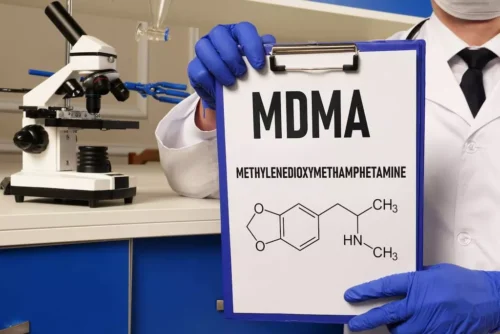
This is a common deficiency in people who misuse alcohol, but it can also occur due to other disorders or conditions. Dementia is an umbrella term for a variety of conditions https://ecosoberhouse.com/ that affect a person’s processing skills and memory. There are a variety of different types, including Alzheimer’s as well as dementia related to alcohol use.
Changes in Alcohol Consumption and Risk of Dementia in a Nationwide Cohort in South Korea
A small number of studies seem to suggest that drinking moderate amounts of alcohol reduces dementia risk compared to not drinking at all. NICE Guidelines recommend that alcohol consumption be reduced as much as possible, particularly in mid-life, to minimize the risk of developing age-related conditions can alcoholism cause dementia such as frailty and dementia. Long-term heavy drinking can also result in a lack of vitamin B1 (thiamine) and Wernicke-Korsakoff syndrome which affects short-term memory. Regularly drinking too much alcohol damages blood vessels in a person’s brain and can lead to high blood pressure.
- Thiamine is essential for brain health and a thiamine deficiency can lead to permanent brain damage.
- The majority of studies do not assess lifetime drinking trajectories.
- Older people are also more vulnerable to injuries from falls due to changes in eyesight, spatial recognition, and bone health.
- ‘Any kind of knock can cause an injury which may cause the brain to make amyloid plaques around the injury site as well as causing direct damage – the build-up of these deposits can help to cause Alzheimer’s in later life,’ explains Professor Gill Livingston.
- Each combined multiple research studies to reach a consensus on alcohol consumption and the development of dementia.
Lifestyle changes

It can affect several areas of the brain, but it most commonly affects the mammillary bodies found on the hypothalamus. While a selection of studies is discussed below, Table 2 gives an overview of all published studies in compliance with our inclusion criteria. ARD is a progressive illness, which means its symptoms often happen in stages and continue to get worse—especially if left untreated. The most distinguishing symptom is confabulation (fabrication) where the person makes up detailed, believable stories about experiences or situations to cover gaps in memory. The results will help determine whether you or your loved one has AUD, dementia, or both. Main Outcomes and Measures The primary outcome was newly diagnosed AD, VaD, or other dementia.
Treatment Options for Alcohol Misuse & Addiction
- Keep reading to learn about the different types of alcohol-related neurologic disease and its signs and symptoms.
- On average, someone with severe dementia will stay four times longer than someone with similar characteristics but who does not have dementia.
- In the fifth edition of the Diagnostic and Statistical Manual of Mental Disorders (DSM-5-TR), it is referred to as alcohol-induced major neurocognitive disorder.
- Alcoholic dementia can occur at any age, and it is expected to worsen rapidly (within a few years) after the initial symptoms begin.
Research suggests it’s possible to experience partial recovery of your brain’s white matter, which is accompanied by an improvement in cognitive and motor abilities. If you’ve been drinking alcohol for a long time, you might experience alcohol withdrawal symptoms, including disorientation, agitation, and mood changes. But your care team can prescribe medications to help with withdrawal symptoms. ARD is a type of cognitive impairment that occurs as a result of heavy alcohol consumption over a long period. You can avoid short-term memory loss by removing alcohol from the equation.
Many of the deficits caused by brain atrophy are similar to those seen in alcoholic dementia. The two terms “alcoholism” and “aging” retrieved about 1,350 papers; adding phrases (for example, “postmortem” or “magnetic resonance”) limited the number to fewer than 100 papers. As pertinent postmortem pathology papers were published in the 1950s and recent animal models of Alzheimer’s disease were created in the early 2000s, articles referenced span the years 1957 to 2024. In total, more than 5,000 articles were considered; approximately 400 are referenced herein (i.e., only articles directly related to search terms were included). A lifelong approach to good health is the best way to lower your risk of dementia. The causes of young-onset dementia, also known as early-onset dementia, are different from those in older people.
How is Alcohol-Related Dementia Diagnosed?
They will also take a patient’s history, perform a physical exam, and conduct lab tests. They will determine if a patient’s health status is consistent with the effects of substance misuse. While drinking may have started out feeling good, tolerance builds over time, and you eventually drink to avoid feeling bad. People with severe alcohol use disorder also tend to have nutritional deficiencies from a poor diet and irregular eating habits. Alcohol-related dementia can cause problems with memory, learning, judgment, and other cognitive skills.
- Alcohol-related dementia is a broad term that refers to brain damage caused by alcohol.
- Reversing alcohol-related dementia involves stopping alcohol use so that healing can occur.
- A study in PLOS Medicine found that people who drank more than seven units a week had higher levels of iron in their brains.
- When a person starts drinking more than around 25 units per week on a regular basis, it may start to affect their ability to think and function properly.

Chief Marketing Officer, Alex Hyde-Smith, explains why a second airing of our advert The Long Goodbye is important to highlight the devastating impact of dementia on people’s lives. With support from the England and Wales Cricket Board, the cricket world is uniting to raise vital funds and awareness of dementia. If you’re worried about yourself, or someone close to you, then check your symptoms today using our symptom checklist.

What is Alcoholic Dementia?

